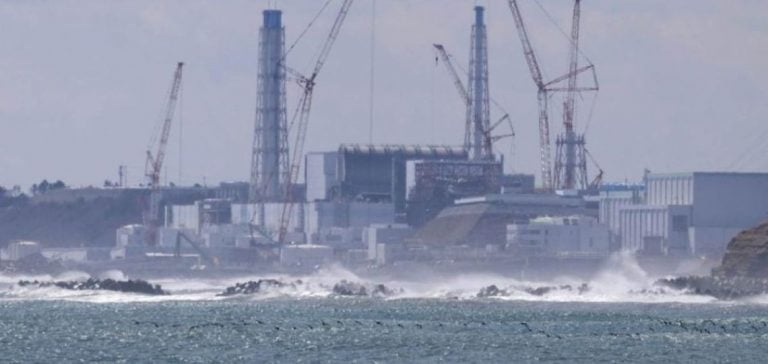Japan is currently discharging treated water from the Fukushima Daiichi power plant into the sea, in response to the 2011 nuclear accident.
This water, after being used to cool the damaged reactors, is treated by the Advanced Liquid Processing System (ALPS).
This system removes almost all radioactive substances, with the exception of tritium.
In August 2023, Japan began discharging this treated water into the ocean, a process scheduled to take place over a period of thirty years.
This discharge plan provoked strong reactions, notably from China, which had imposed an embargo on Japanese fish products.
The main criticism was the lack of solid international guarantees concerning the discharges.
In response to these concerns, an agreement was reached between Tokyo and Beijing, allowing China to carry out independent sampling and analysis at various stages of the discharge process.
IAEA strengthens monitoring framework
The water discharge process at Fukushima is supervised by the International Atomic Energy Agency (IAEA), which already carries out independent analyses.
However, the agreement signed between China and Japan reinforces this framework.
It authorizes the active participation of China and other countries in the monitoring of water discharge, guaranteeing greater transparency and the possibility of inter-laboratory comparisons.
Japan has confirmed its commitment to maintaining rigorous monitoring in collaboration with the IAEA, ensuring that international safety standards will be respected throughout the process.
This is intended to ease regional tensions and address the concerns of neighboring countries.
Although tritium concentrations in the discharged water are well below the limits permitted by international standards, the active participation of China and other stakeholders in the monitoring reinforces the credibility of the process.
Economic consequences for the Japanese fishing industry
The Chinese embargo on Japanese seafood products, imposed following the announcement of the rejections, had a significant impact on Japanese exports.
China, one of the biggest importers of these products, had justified the decision on health grounds.
However, the monitoring agreement, which incorporates independent analysis and international participation, could lead to the gradual lifting of the embargo.
China has stated that it will re-evaluate its measures in the light of the scientific results of this monitoring.
For Japan, the resumption of exports of fish products to China represents a major economic challenge.
This particularly vulnerable sector has already suffered from the repercussions of the nuclear accident and the uncertainties surrounding water discharges.
Japanese fishermen hope that this agreement will restore confidence in international markets.
Continuous monitoring to guarantee safety
The Japanese authorities have stated that tritium levels in the discharged water are well below the thresholds set by international regulations.
According to the IAEA, analyses carried out at Fukushima have shown that current levels present no risk to human health or the marine environment.
The agency plans to maintain an on-site presence throughout the discharge operations, to ensure continuous monitoring.
Discharges of treated water from Fukushima are expected to continue for the next three decades, requiring constant cooperation between the various countries involved.
This long-term management involves economic, political and diplomatic issues that go beyond mere environmental considerations.
The monitoring framework put in place could serve as a model for other similar situations worldwide, by incorporating mechanisms for transparency and international cooperation.
Prospects for the future of nuclear power and Sino-Japanese relations
This monitoring agreement marks an important step in the management of tensions between China and Japan.
Beyond the technical aspect of monitoring water discharges, it reflects a willingness to cooperate in a complex geopolitical context.
China, which remains an influential player on the Asian scene, and Japan, whose nuclear sector has been under close scrutiny since 2011, must now navigate between their economic interests and their international responsibilities.
The development of this cooperation will be decisive for the future of trade relations between the two countries, particularly in the fisheries sector.
On a broader scale, this agreement could also influence international discussions on nuclear waste management and the transparency of industrial practices.
Increased surveillance of Fukushima is thus becoming a strategic issue, both for energy security and for regional economic balances.






















